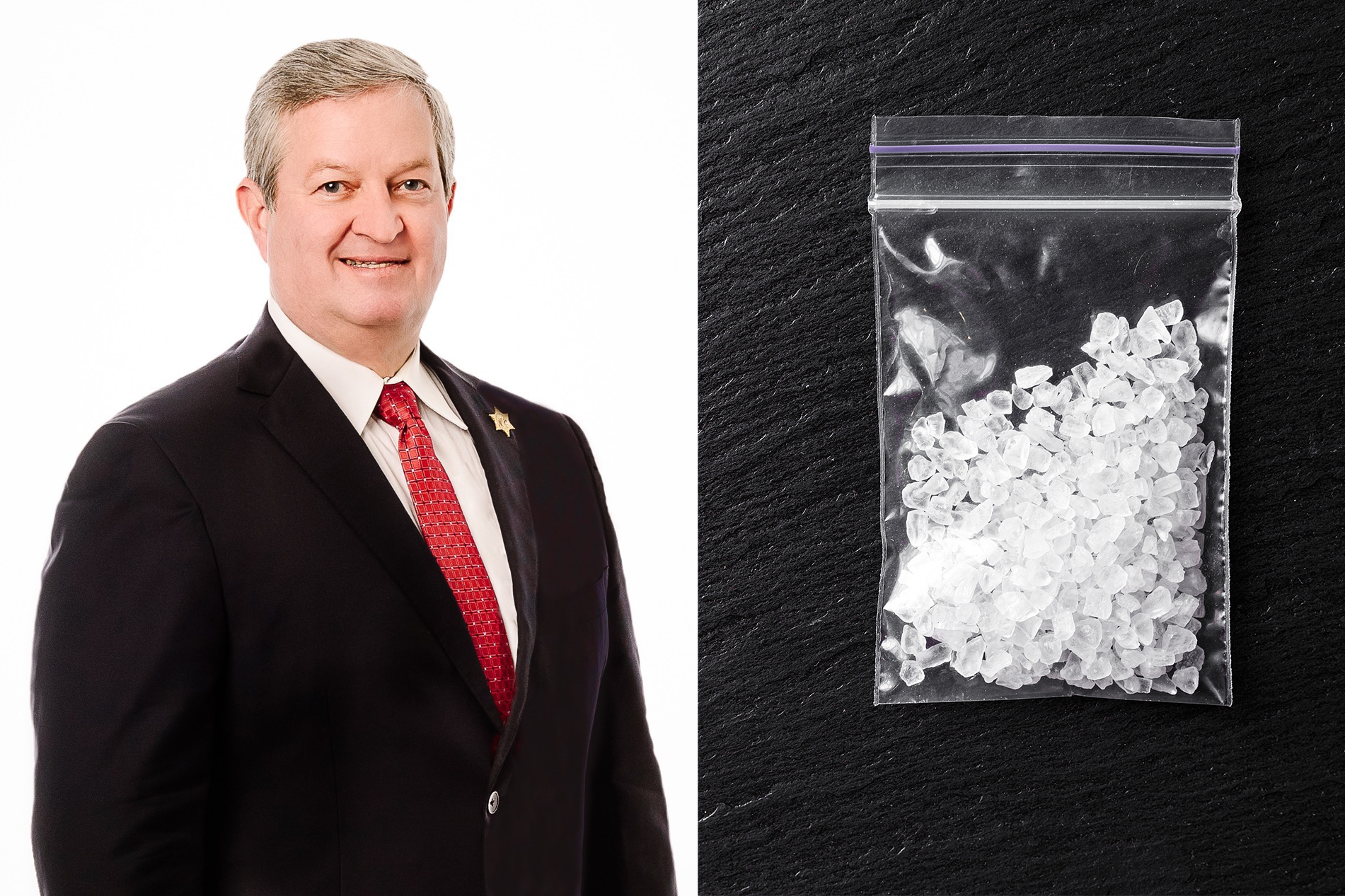MOBILE — Mobile County Sheriff Sam Cochran only has a few more days in office, and he is now speaking about his career and how things were not what he thought they were in the beginning.
Cochran was elected as sheriff for the first time in 2006. He was re-elected in 2010, 2014 and 2018. He will retire Monday, Jan. 16, after 47 years in law enforcement.
One of the biggest successes in his career was the passage of a law that required pharmacies to share information on people who purchase pseudoephedrine, which can be used to make methamphetamine. The law allows for a person with a valid state ID and no felony convictions on their record to purchase up to two pseudoephedrine products at a time. Cochran said he was proud of the passage of that law and knows firsthand how effective it can be.
“It was crazy, I had never taken it in my life except one time I needed to get some,” Cochran remembered. “I went up and they asked me for my driver’s license, and I pulled it out, and they said, ‘This is expired.’ I said, ‘What? I am the sheriff of Mobile County, and I can’t even get this.’ But I thought, ‘My own law just stopped me from buying pseudoephedrine.’ But it was my fault.”
Along with debilitating addiction, Mobile has experienced dangerous fires from methamphetamine operations in homes, apartments and businesses. There have even been cases of children being badly burned due to meth explosions. Cochran said first responders were becoming overwhelmed with the impact of the dangerous drug, so he wanted to put a law into place that required a prescription for pseudoephedrine.
“We were just being devastated with it,” he explained. “And we’re so close to Mississippi and Mississippi had passed a bill making pseudoephedrine a prescription-only drug, so we had people from there running to Mobile to get it. In fact, I think the Walmart on Moffett Road, in Semmes, had the heaviest sales of pseudoephedrine of any store in the state of Alabama.”
Around 2009 is when the problems really ramped up, Cochran said, and those problems continued for several years. Cochran led the effort with lawmakers to make it harder for people to manufacture methamphetamine. But when he got to Montgomery, he said things didn't go as planned.
Cochran said he found out quickly the law was not going to pass. When he spoke to the Speaker of the House at the time, Mike Hubbard, Cochran claims Hubbard told him he would not let that law pass. Cochran then began researching and he said he discovered Hubbard was receiving money from pharmaceutical companies for his campaign. According to the Secretary of State’s campaign contribution records, Hubbard did receive campaign contributions from Pharmavite, PHRMA and Takeda Pharmaceuticals USA, Inc. Hubbard, who was recently released from prison after serving time for ethics violations, has not been available for comment, but Cochran said he spoke to people who know exactly how the game of politics is played.
“I’ve learned so much in my career,” Cochran told 1819 News. “Unfortunately, you learn this stuff towards the end of your career or about halfway through your career, about how it really works … they will start giving them money through different ways, so it’s hard to trace. It’s just pure influence. So, they give big bucks, lots of money to Mike Hubbard and of course, then he turns around, and back in those days they would give money to a PAC he’s in charge of then he gives the money to other legislators then they support him to be Speaker of the House. That’s how it worked back in those days and I think that’s still happening today. They can’t give them money directly out of their campaign account anymore but they still can have a PAC fund.”
Cochran told 1819 News he made friends with a lobbyist for pharmaceutical companies at the time and learned much more than what he suspected.
“He said, ‘Look, the way you kill a bill is you’ve got a few players in the legislature,” Cochran said about the lobbyist. “You’ve got the Speaker of the House, you’ve got the head of the Judicial Committee and you’ve got the head of the Rules Committee and one or two others, and that’s all you’ve got to focus on.’ So, he said, ‘What we’ll do is we’ll run ads in their local municipalities,’ because that’s what they did down here and those ads said, ‘Please don’t take our meds, we need our meds,’ and they ran those and spent a lot of money. I learned since then he was absolutely right … it’s those key players and you don’t have to go for others because they’re not going to go against what the chairman of that committee says.”
Cochran said the Walmart Corporation also fought against his efforts to make pseudoephedrine a prescription-only drug. He said because the drugs made Walmart so much money, the corporation lobbied against the bill despite their pharmacists being in support of it. In the end, the law didn’t pass, but he was happy to see the law pass to require pharmacies to connect and share information.
For Mobile County, there are still many methamphetamine users, but Cochran said the problems from the manufacturing of meth have decreased significantly. He said the law was one of the most successful policies put into place during his time as sheriff.
To connect with the author of this story, or to comment, email erica.thomas@1819news.com.
Don’t miss out! Subscribe to our newsletter and get our top stories every weekday morning.










